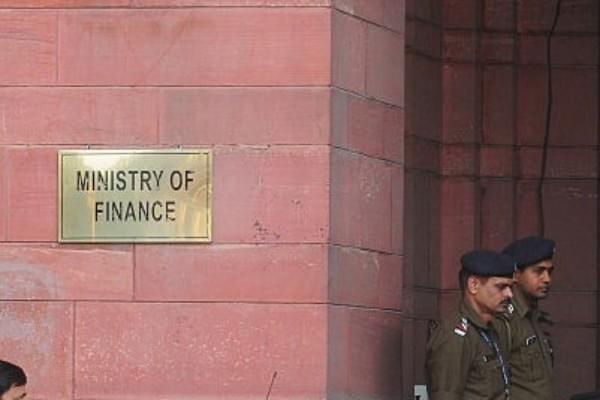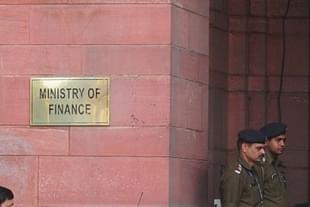Economy
Inheritance Tax Is An Idea Whose Time Has Come; Here’s How To Do It Right
R Jagannathan
Jul 04, 2019, 08:19 AM | Updated 08:18 AM IST
Save & read from anywhere!
Bookmark stories for easy access on any device or the Swarajya app.


The idea of introducing an inheritance tax has been floating around the corridors of power for a while now. It was mentioned by P Chidambaram under United Progressive Alliance-2, who called for a debate on it, but was met with a stony silence from those who would have ended up paying the tax. Under National Democratic Alliance-2, former Minister of State for Finance and later Civil Aviation, Jayant Sinha, was an ardent advocate of the idea, but in its first term the Modi government was focused excessively on income tax compliance, and less on inheritance taxes.
In 2012, Chidambaram asked the right question during a lecture on ‘The Growth-Equity Tradeoff in Tax Policy: Evidence from a Large Panel of Countries’. He asked: “Have we paid little attention to accumulation of wealth in few hands? I am still hesitant to talk about inter-generational equity and therefore inheritance tax,” he admitted, but added a question: “We should ask ourselves where moderation stops and when moderation becomes a passport to accumulation of wealth.” Jayant Sinha’s views on inheritance taxes can be accessed in this report and accompanying video.
India abolished the estate duty in 1985 for the simple reason that it was too much trouble over too little revenues for the exchequer. But it was also the right decision then, for India had very few billionaires at that time, and most wealth was in the form of property, and the equity market boom was still more than half a decade away.
But post-liberalisation, India has created multiple dollar billionaires, and several thousand millionaires, which means inheritance is transferring billions of dollars of unearned wealth to the sons and daughters of those who created it. In rupee terms, a dollar billionaire is worth at least around Rs 6,900 crore at current exchange rates even at the bottom end of the range. There is something obscene about people having access to this kind of money power without having earned it. A dollar millionaire is less of a moral eyesore, but he or she would still be worth at least Rs 6.9 crore – with more than a comfortable legacy to leave for progeny.
There is something less than moral if those who had no hand (or little hand) in creating humongous wealth are inheritors of such wealth and power. It was not for nothing that Gandhiji considered all wealth held by businessmen as money to be held in trust for the poor. The world’s most conscientious billionaires, from Warren Buffett to Bill Gates to our own Azim Premji and Shiv Nadar, consider it their duty to return a large part of their wealth to the society that enabled them to enjoy it while they were alive. Buffett pithily remarked that billionaires like him were essentially beneficiaries of the Lucky Sperm Club, people born in the right place at the right time and to the right set of parents.
Leaving wealth distribution only to those who think in terms charity is, of course, not an option for policy-makers, for they have to consider how this wealth can be redistributed to those in need through inheritance taxation. So, the Narendra Modi government is not wrong to consider imposing some kind of inheritance tax. But there are right ways of going about it, and wrong ways. And then there is the timing of it.
There is also a major caveat to keep in mind: the ability to pass on one’s wealth and power to progeny is a huge motivator for wealth creation. Destroying this motivation makes no sense, for all societies need wealth creators. This means any inheritance tax should ensure that this motivation is not destroyed among potential wealth creators while taxing the inheritance itself.
Currently, most Indian businessmen are low on optimism and confidence, thanks to years of deleveraging and loss of wealth due to bankruptcy and other proceedings against them. So, it would be best if the idea of inheritance tax is not introduced this year, but left for the next year. This will allow us to have the right kind of inheritance tax, rather than one that just panders to the soak-the-rich mentality among politicians.
The first thing to do before introducing an inheritance tax is to have a panel that includes credible businessmen. Committees to plan such taxes tend to have the usual suspects (babus, netas and economists), but never the people directly affected by their proposals. An inheritance tax panel should include the likes of Azim Premji and NR Narayana Murthy to ensure that the tax is not mindless or counter-productive.
Second, there are two ways of taxing wealth. One is through an annual wealth tax, and the other is the inheritance tax proper, which would be payable only when property and wealth are transferred on the death of the owner. The two taxes should not exist simultaneously. The wealth tax, even if it is a low 0.5 percent or one percent, is an annual drain on the stock of wealth, and hence deeply resented. It should be abolished when inheritance tax is legislated. This spares wealth creators an annual worry, leaving them free to concentrate on accumulating wealth.
Third, there should be generous exemptions for individual inheritors, and operational businesses should be totally exempt from it. There should be exemptions on one or two properties, and a substantial share of cash holdings. This way even inheritors will not lose out fully when the tax is introduced.
It is worth noting, that India has been haemorrhaging millionaires. In 2018, according to the Global Wealth Migration Review 2019, some 5,000 high net-worth individuals (HNIs) left India – roughly two percent of the total number of HNIs in the country. You can’t create wealth or expect to earn substantial tax resources from it if more of the wealth creators are packing their bags and leaving our shores.
Fourth, and this is most important, inheritance taxes should find a way to separate shareholding that is needed for control of companies from the economic wealth that is included in such shareholding. When Azim Premji transferred 67 percent of his shareholdings to charitable trusts, he kept the voting power of his stocks with the family. When Jeff Bezos of Amazon had his expensive divorce settlement with Mackenzie Bezos, a large share of the wealth went to her, but the four percent voting power on shares worth around $34 billion was retained with Jeff Bezos.
This model of separating economic ownership from voting power with inheritors – at least for one or two generations after the main wealth creator passes away – may be helpful in retaining the motivation to create wealth among entrepreneurs. It would have been a pity if Dhirubhai Ambani’s voting power had to be sacrificed by Mukesh Ambani, thus dissipating his ability to create more wealth.
India needs to legislate an inheritance tax, but we need to do it right. It would best to do it after a lot of discussion and debate on it, allowing the law to kick in from the next financial year rather than this year. Business does not need to be delivered another shock when confidence levels are so low.
Jagannathan is former Editorial Director, Swarajya. He tweets at @TheJaggi.





